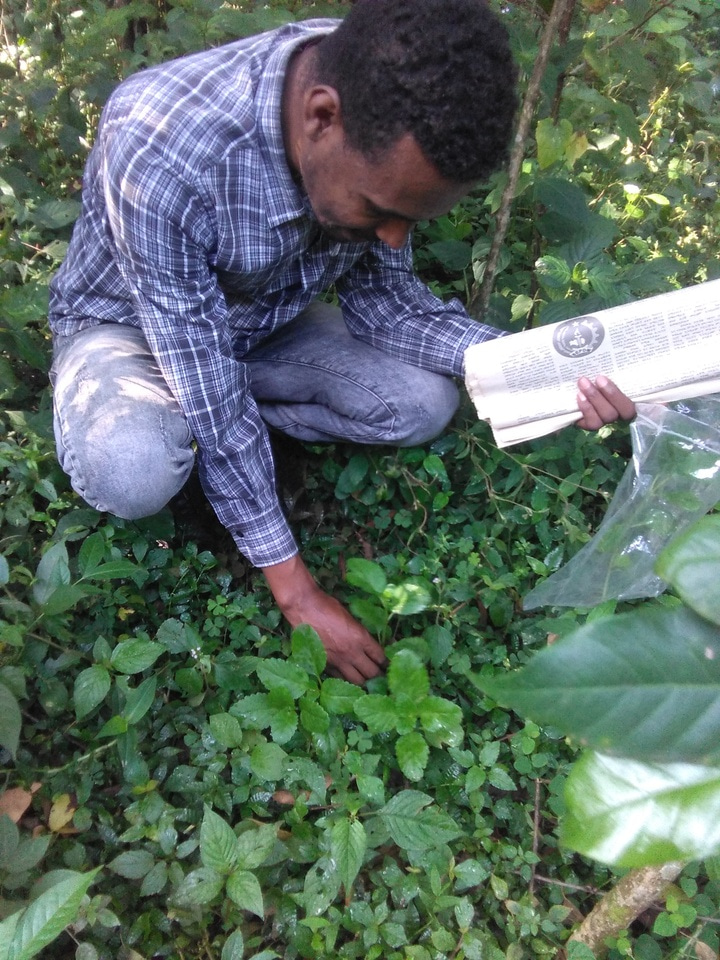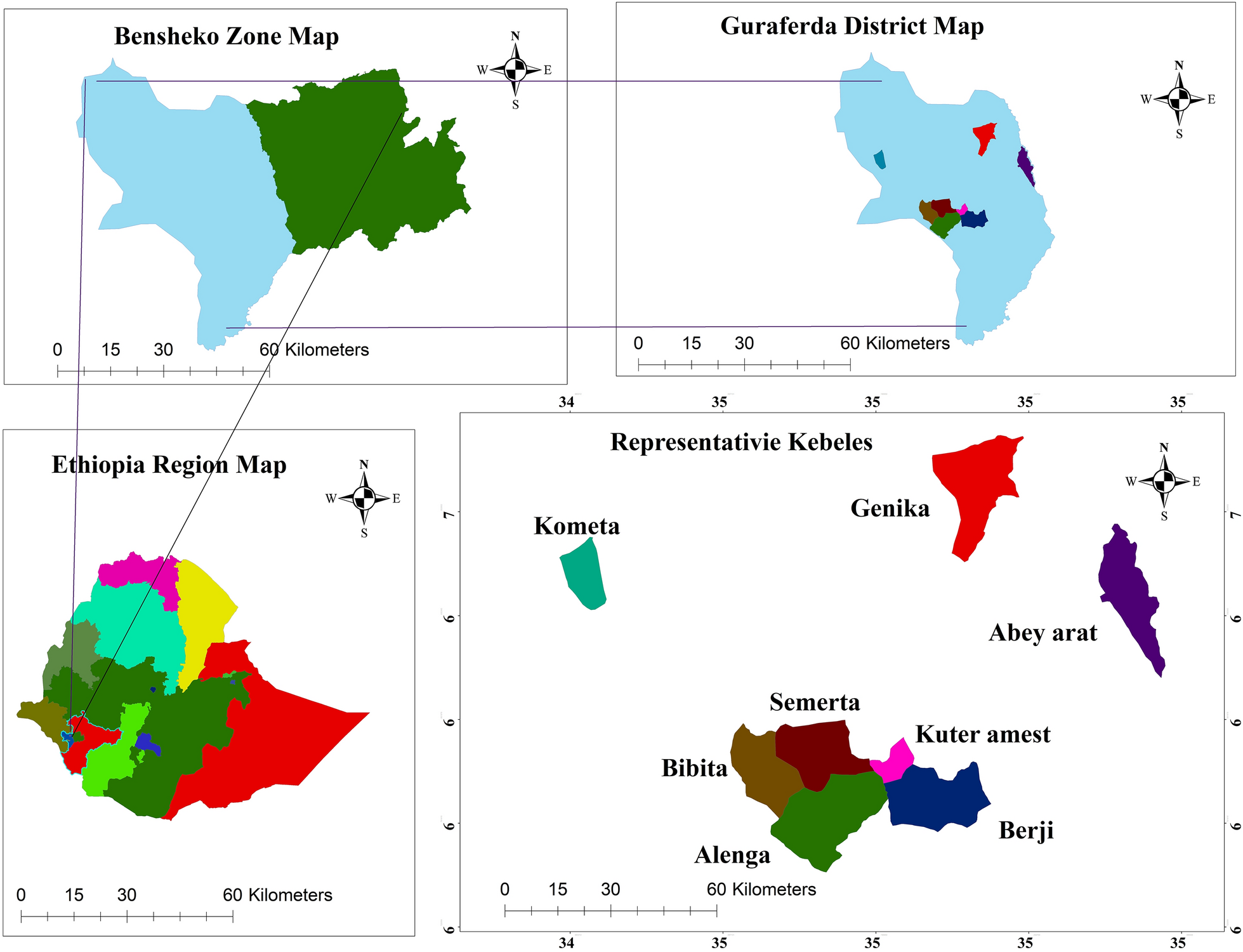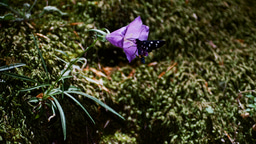Traditionally used medicinal plants for human ailments and their threats in Guraferda District, Benchi-Sheko zone, Southwest Ethiopia
Published in Biomedical Research

The field of traditional medicine encompasses a wide range of knowledge, skills, and practices that are deeply rooted in the theories, beliefs, and experiences of different cultures. The research aimed to identify traditional medicinal plants used in Guraferda District and assess the threats they face. A total of 96 individuals, 80 males and 16 females, were interviewed to gather ethnobotanical data. Statistical tests like independent t tests, ANOVA, correlation, and regression were conducted using R software version 4.3.2 to compare informant groups. The study found 81 medicinal plant species in the district from 71 genera and 38 families, with Asteraceae and Solanaceae families having the most species. Leaves were the most commonly used plant part for medicine. Significant differences in plant knowledge were observed across genders, age groups, education levels, and experiences. The highest ICF value was for Dermal and Cutaneous ailments, and Cissampelos mucronata A. Rich and Bidens pilosa L. had the highest fidelity levels. The study highlighted the importance of traditional medicinal plants in treating ailments but noted threats like overharvesting, habitat destruction, and climate change. Conservation efforts and sustainable harvesting practices are crucial to ensure the availability of these plants for future generations. Further research is needed to explore their potential for modern medicine and develop sustainable use strategies.
Follow the Topic
-
Journal of Ethnobiology and Ethnomedicine

This journal publishes original research focusing on cultural perceptions of nature and of human and animal health. It invites research articles, reviews and commentaries concerning the investigations of the inextricable links between human societies and nature, food, and health.
Related Collections
With Collections, you can get published faster and increase your visibility.
Ethnobiology of the islands
This Collection examines the socio-ecological systems of "islands" and coastal areas worldwide, focusing on the relationship between humans and biota and even non-biotic components and the implications of these interactions over time and space. Cross-cultural analysis, indigenous perspectives, and the complex dynamics between the local knowledge of these "isles" (especially the most peripheral and marginalized ones) and the contiguous mainland are particularly welcome. Issues related to the effects of unsustainable tourism on local knowledge systems are also very appropriate.
The projection of the contributions should aim to foster the community-centered sustainable management of marine and coastal resources and envision new paths in environmental education and political ecology.
This Collection supports and amplifies research related to SDG 14, Life Below Water and SDG 15, Life on Land.
All submissions in this collection undergo the journal’s standard peer review process. Similarly, all manuscripts authored by a Guest Editor(s) will be handled by the Editor-in-Chief. As an open access publication, this journal levies an article processing fee (details here). We recognize that many key stakeholders may not have access to such resources and are committed to supporting participation in this issue wherever resources are a barrier. For more information about what support may be available, please visit OA funding and support, or email OAfundingpolicy@springernature.com or the Editor-in-Chief.
Publishing Model: Open Access
Deadline: Jul 03, 2026
Small-scale farming and ethnobiology – Bridging local knowledge, biodiversity, and cultural landscapes
The importance of deepening our understanding of small-scale farming and its intersections with ethnobiology and ethnoecology cannot be overstated. These fields illuminate not only traditional agricultural practices that have sustained communities for generations, but also contemporary locally adapted sustainable practices. Together, they underscore the vital role of local knowledge in preserving biodiversity and shaping cultural landscapes.
Recent research has highlighted the intricate relationships between local communities and their territories and ecosystems, showing how both traditional and locally adapted innovative farming methods can enhance biodiversity and promote ecological balance. These insights are essential for informing sustainable land management and ecosystem resilience.
Looking ahead, continued exploration in this area holds the potential to yield transformative insights. Integrating traditional knowledge with organic and agroecological practices—which may be ancient, innovative, or retro-innovative—can lead to more sustainable and resilient food and agriculture systems. This research is not only key to preserving cultural heritage but also to addressing urgent global challenges related to food security and environmental sustainability.
Topics of interest include, but are not limited to:
Local Knowledge & Sustainability
• Local Knowledge Systems in Agriculture
• Traditional Agricultural Practices and Sustainability
• Indigenous Knowledge and Climate Resilience
Biodiversity & Conservation
• Biodiversity Conservation in Small-Scale Farming
• Ethnobiological Approaches to Conservation
• Ethnoecological Perspectives on Land Use
Agroecology, Organic Farming & Cultural Landscapes
• Agroecological & Organic Practices and Transitions
• Innovation and Local Knowledge in Agroecological and Organic Systems
• Cultural Landscapes and Food Sovereignty.
This Collection supports and amplifies research related to SDG 2, Zero hunger, SDG 12, Responsible consumption and production, and SDG 15, Life on land.
All submissions in this collection undergo the journal’s standard peer review process. Similarly, all manuscripts authored by a Guest Editor(s) will be handled by the Editor-in-Chief. As an open access publication, this journal levies an article processing fee (details here). We recognize that many key stakeholders may not have access to such resources and are committed to supporting participation in this issue wherever resources are a barrier. For more information about what support may be available, please visit OA funding and support, or email OAfundingpolicy@springernature.com or the Editor-in-Chief.
Publishing Model: Open Access
Deadline: Jun 22, 2026




Please sign in or register for FREE
If you are a registered user on Research Communities by Springer Nature, please sign in